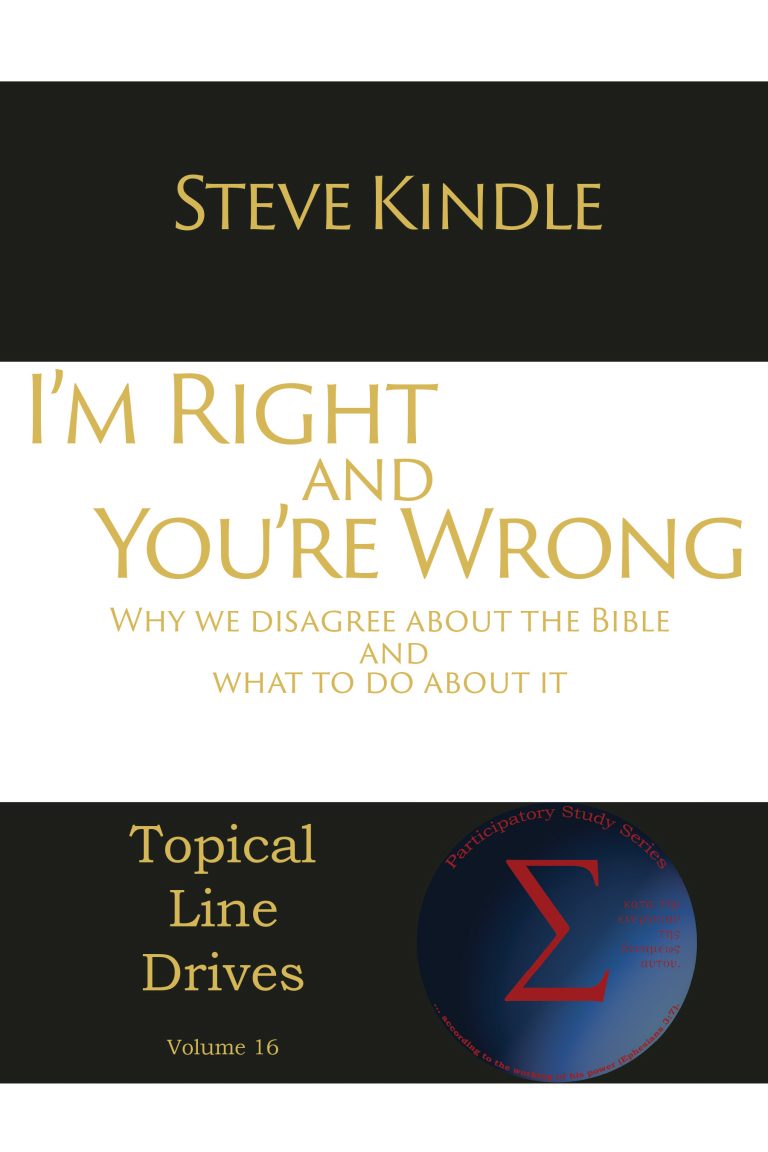Rightly Dividing or Slicing and Dicing – Jeremiah 4:23
In debates on creation and evolution I have occasionally encountered the ruin and restoration theory. This view allows an old earth, but does so in a different way. Genesis 1:1 is viewed as an original creation, and then the word in 1:2 normally translated “was” is instead translated “became.” I discuss the details in the article above.
But what I find even more interesting, and certainly more relevant to this Bible study blog, is the slicing and dicing that must be done on verses elsewhere in scripture in order to make them fit with this theory. In fact, one of my major complaints about dispensationalism is that it tends to make it next to impossible to read contextually. The context is created by the dispensations, but clearly not recognized by the writers of the text.
An example of this tendency is Jeremiah 4:23. This is summarized in a note in [tag]Scofield[/tag]’s Reference Bible: “Cf. Gen. i.2. “Without form and void” describes the condition of the earth as the result of the judgment (vs. 24-26; Isa. xxiv. 1) which overthrew the primal order of Genesis i.1.”
But if you look at Jeremiah 4, you find that the topic has nothing to do with any original creation, nor with a primal judgment but rather with a judgment on Judah for its sins. The prophet goes on to depict the destruction that will come on the land. There is no literary division between verse 22, clearly about Judah, and verse 23, which Scofield is claiming refers to another time and place.
The argument is that “without form and void” refers back to Genesis 1:2, as surely it does. But for what purpose does it make this reference? It intends to compare the judgment to a removal of all the blessings of creation and to evoke that primal emptiness as a hyperbolic description of the destruction to come to Judah. Is there justification for calling it hyperbole? Absolutely. First, I would accept this as hyperbole based on the context alone. The context clearly indicates the destruction of Judah by Babylon, and “without form and void” is hyperbole in connection with that destruction. But further, in verse 27, after providing this description of absolute destruction, we find this: “. . . yet will I not make a full end.” “Without form and void” is pretty complete. This is all allowable in poetic language.
To understand this as referring to another time and place is to take it completely out of the context of Jeremiah. Such an interpretation would mean that Jeremiah suddenly, in the middle of a comparatively coherent discussion of one topic, changes subjects for several lines without any indication that the subject has changed, and then switches back. Verse 28, for example, again speaks of this destruction as future.
If one can do that, then one can take any phrase or clause of scripture and force it to mean anything one desires.
